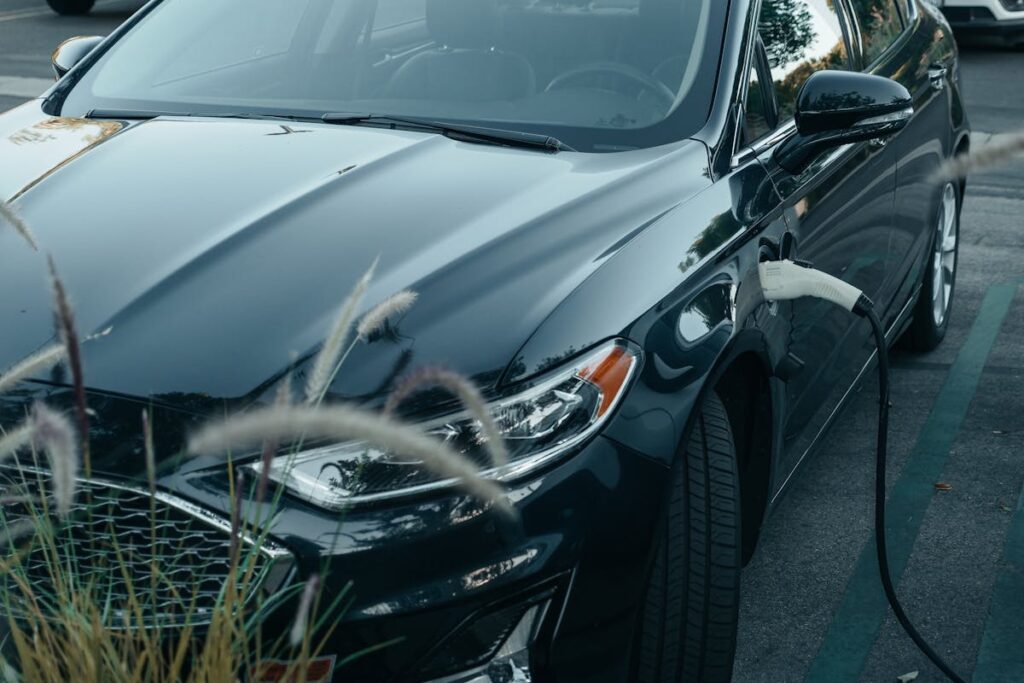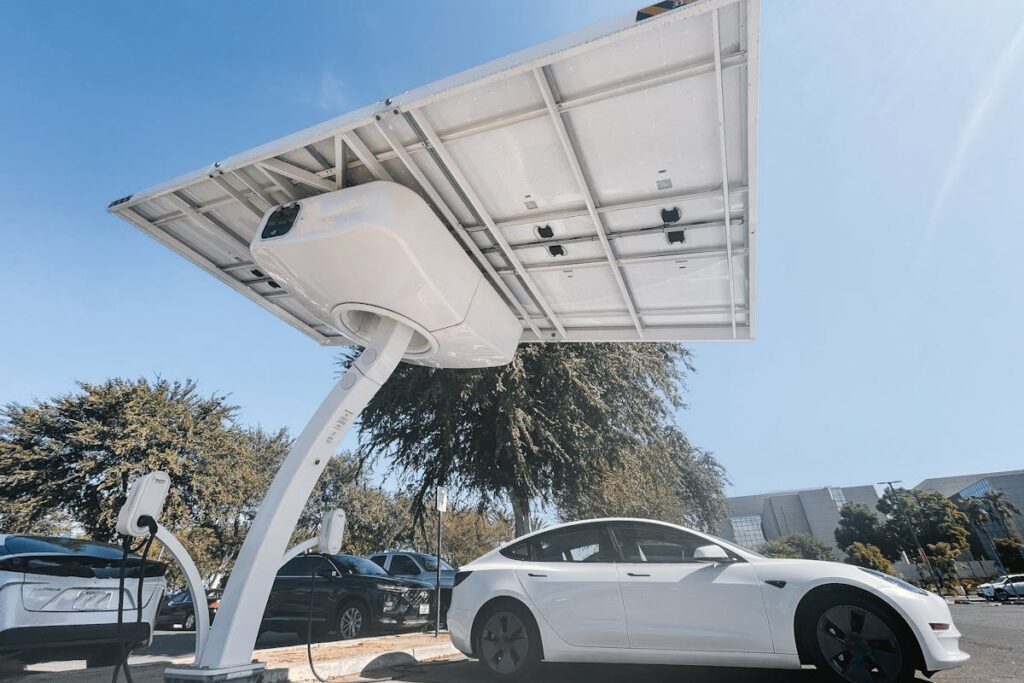The hybrid car, a marvel of automotive technology, offers an intriguing blend of benefits and challenges. On one hand, they promise increased fuel efficiency, lower carbon emissions, and in certain jurisdictions, attractive tax incentives – all facets that appeal to the environmentally conscious and cost-sensitive driver. On the other hand, they pose considerable upfront costs, potential expenses related to battery replacement, and may even restrict the driver with a limited range. As we unpack these aspects further, we invite you to join this exploration of whether the pros outweigh the cons in the world of hybrid vehicles.
Understanding Hybrid Cars
Hybrid cars, a fusion of innovation and efficiency, have surged in popularity in recent years. The driving experience is transformed by hybrid technology, which blends traditional combustion engines with electric power. This combination not only reduces emissions but also enhances performance. The technology shows an intelligent use of resources, since the electric motor provides power at low speeds, while the gasoline engine takes over at higher speeds. Regenerative braking, another feature of hybrid technology, further boosts efficiency by converting kinetic energy back into stored power during braking. Consequently, hybrid cars offer a unique, environmentally conscious driving experience. Nevertheless, the technology is not without its drawbacks, which we’ll explore in this extensive analysis.
Pro: Fuel Efficiency
One of the key advantages of hybrid cars is their fuel efficiency, particularly regarding maximizing mileage per gallon. A comparative analysis of fuel costs between hybrid and conventional vehicles offers potential users a clearer perspective on potential savings. Furthermore, the environmental impact, specifically the reduction in carbon emissions associated with this efficiency, further enhances the appeal of hybrid vehicles.
Maximizing Mileage per Gallon
A significant majority of drivers are turning to hybrid cars due to their exceptional fuel efficiency. This is where the concept of maximizing mileage per gallon comes into play. Hybrid cars are engineered with advanced technology that combines gasoline engines with electric motors, offering a superior mile-per-gallon ratio compared to traditional vehicles.
To further enhance fuel efficiency, mileage tips can be employed. One such tip includes gradual acceleration and deceleration, which reduces the demand on the vehicle’s engine and conserves fuel. Regular vehicle maintenance, such as routine oil changes and keeping tires inflated to the correct pressure, also plays a pivotal role.
Through these methods, hybrid drivers can optimize their vehicle’s performance and capitalize on the inherent fuel efficiency, maximizing their mileage per gallon.
Comparing Hybrid Fuel Costs
How do the fuel costs of hybrid cars compare to those of traditional vehicles? The answer lies in the heart of hybrid technology. Hybrid cars employ a dual propulsion system, combining a gasoline engine with an electric motor. This synergy allows for significant fuel savings in comparison to conventional vehicles.
The fuel efficiency of hybrids can be nearly double that of traditional cars, translating into substantial savings for the driver. It is essential to recognize that the extent of these savings depends on various factors such as driving habits, fuel prices, and vehicle maintenance.
The initial cost of a hybrid may be higher, but the long-term fuel savings can offset this. Consequently, when comparing fuel costs, hybrid technology presents a compelling case with potential for substantial economy.
Impact on Environment
While the economic benefits of driving a hybrid car are compelling, their environmental impact is equally, if not more, significant. Hybrid cars utilize fuel efficiency technology, designed to reduce the carbon footprint. Their engines combine gasoline power and electric power to function, thereby reducing reliance on fossil fuels and subsequently lessening greenhouse gas emissions. The environmental benefits are noticeable. It’s estimated that hybrids emit approximately 25% to 35% less CO2 compared to conventional vehicles. This has a considerable effect on slowing global warming and improving air quality. Investing in a hybrid vehicle is therefore not just a financially savvy decision, but an environmentally conscious one, contributing to the preservation of our planet.
Pro: Lower Emissions
Undeniably, one of the principal advantages of driving a hybrid car is the significant reduction in greenhouse gas emissions. Hybrid vehicles, by design, meet stringent emission standards, conforming to the most rigorous environmental regulations in many countries. They utilize a combination of internal combustion engines and electric motors, thereby cutting the overall emissions produced. The result is a noticeable decrease in pollutants released into the atmosphere, including carbon dioxide, a leading cause of global warming. A consistent reliance on hybrid cars can lead to a substantial reduction in the carbon footprint of the transportation sector. Consequently, choosing to drive a hybrid car is a viable and tangible step towards achieving a sustainable, eco-friendly mode of transport.
Pro: Tax Incentives
Another significant advantage of owning a hybrid car stems from the availability of tax incentives. Governments worldwide are increasingly encouraging the purchase of environmentally friendly vehicles through lucrative tax credits. These incentives not only reduce the overall cost of owning a hybrid car, but they also provide substantial financial benefits to the owner. A prospective buyer can take advantage of these benefits by carefully researching the specific tax credits available in their region or country. These financial incentives can be substantial, often running into thousands of dollars, making the prospect of owning a hybrid car more attractive. Consequently, tax incentives serve as a compelling pro, making hybrid cars a cost-effective choice for the environmentally conscious and financially savvy consumer.

Con: Higher Initial Cost
Despite the numerous advantages of hybrid cars, one significant deterrent for potential buyers is the elevated upfront cost. When compared to their conventional counterparts, hybrids typically carry a heftier price tag, which may deter cost-conscious consumers. Additionally, the rates of depreciation for hybrid vehicles can also contribute to their higher overall cost, hence, a thorough examination of these factors is essential for a complete understanding.
Price Comparison: Hybrid vs. Regular
While the allure of improved fuel efficiency and environmental benefits is appealing, the potential buyer must evaluate the initial cost of purchasing a hybrid vehicle. Comparing the price tags of hybrid cars to their regular counterparts often reveals a stark contrast. Hybrids typically carry a higher initial cost, which can deter prospective buyers. However, it’s crucial to examine hybrid incentives offered by governments or manufacturers, which can considerably reduce the upfront expense. On the other hand, the resale value of hybrids tends to be higher, potentially offsetting some of the initial costs in the long term. As a result, while the upfront cost is a notable factor, a thorough analysis should take into account hybrid incentives and resale value, painting a more nuanced picture of the financial implications.
Hybrid Car Depreciation Rate
One often overlooked aspect of owning a hybrid vehicle is the depreciation rate. Despite their environmental appeal and fuel efficiency, hybrids tend to depreciate at a faster pace than their conventional counterparts. This depreciation trend is largely driven by the high initial cost of hybrids and the evolving technology, which can make older models seem outdated.
The hybrid resale market is also affected by this rapid depreciation. Many potential buyers are wary of purchasing used hybrids due to concerns about battery lifespan and replacement costs. This reluctance can further depress hybrid resale values.
Con: Battery Replacement Expenses
Although hybrid vehicles have gained popularity for their fuel efficiency and eco-friendly attributes, they come with the hidden cost of battery replacement. The battery lifespan of hybrid cars is typically around 8-10 years, but this can drastically vary depending on driving habits and environmental factors. When the time comes for replacement, owners can expect to shell out anywhere from $1,000 to $6,000, making this a significant maintenance cost. This expense is often overlooked by consumers entranced by the hybrid’s initial price tag and MPG ratings. Manufacturers offer warranties, but these often expire before the battery does. Consequently, while hybrid cars can save money on fuel, these savings may eventually be offset by the cost of battery replacement.
Con: Limited Driving Range
Despite their impressive fuel efficiency, hybrid cars often suffer from a limited driving range, making long-distance travel more challenging. This limitation is primarily due to the battery capacity, which can be quickly depleted depending on driving habits, such as speed, acceleration, and use of climate control. Driving beyond the electric range requires reliance on the gasoline engine, negating some of the environmental benefits of driving a hybrid. Furthermore, the charging infrastructure in many regions is not yet robust enough to accommodate hybrid cars, especially for long-distance journeys. While charging stations are becoming more widespread, their dispersion is often inconsistent, making it difficult to plan trips based on the availability of charging points. To summarize, the limited driving range can compromise the convenience and environmental efficacy of hybrid cars.
Making an Informed Decision
How, then, does one navigate the complexities of the hybrid car market? An informed decision hinges on a careful analysis of both the prospective long term savings and the maintenance considerations. Hybrids can offer substantial savings over time, particularly in areas where petrol prices are high. However, these savings must be weighed against potential maintenance costs. While hybrid technology is increasingly reliable, some components, such as the battery, can be costly to replace. Additionally, not all mechanics are trained to work on hybrids, potentially limiting service options. Ultimately, each buyer must assess their driving habits, budget constraints, and environmental priorities in order to make an informed choice about driving a hybrid.
Frequently Asked Questions
What Is the Average Lifespan of a Hybrid Car?
With advancements in hybrid technology, the average lifespan of a hybrid car can be comparable to that of conventional cars, typically around 150,000 to 200,000 miles. However, vehicle longevity depends greatly on maintenance and driving habits.
How Does Driving a Hybrid Car Impact Insurance Rates?
Driving a hybrid car can influence insurance premiums due to its unique risk factors. Although they’re considered safer, their high repair costs can potentially lead to higher insurance rates compared to conventional vehicles.
Does a Hybrid Car Require Special Maintenance or Services?
Yes, hybrid cars require special maintenance. Their complex systems necessitate regular fluid checks. Additionally, battery care is essential, as hybrid vehicles utilize a unique battery system. Expert servicing is advised to guarantee peak performance and longevity.
How Does a Hybrid Car Perform in Terms of Speed and Acceleration?
Hybrid cars generally exhibit commendable speed performance and acceleration comparison to conventional vehicles. However, their acceleration may be slightly slower due to the focus on energy efficiency and emission reduction rather than high-speed performance.
Are There Hybrid Cars That Can Accommodate Larger Families?
Yes, there are numerous family-friendly hybrid car options available with spacious interiors. Models such as the Toyota Highlander Hybrid and Ford Explorer Hybrid can comfortably accommodate larger families, offering both efficiency and ample room.

